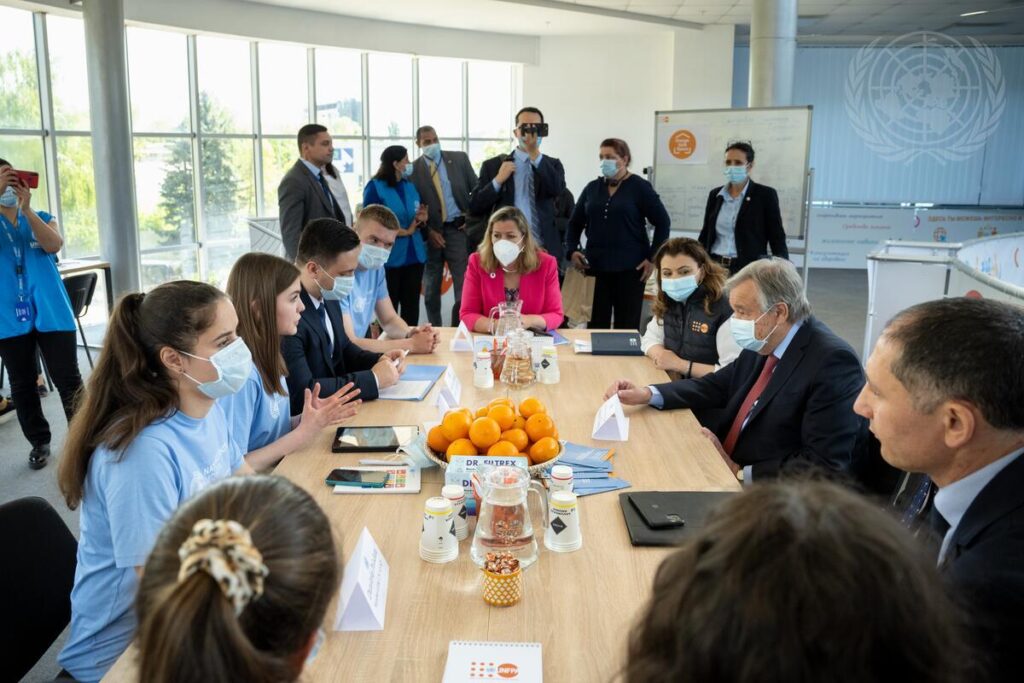
More than 5.6 million people have fled Ukraine since Russia’s invasion. The experience of financial insecurity – due to unemployment, a loss of income, and limited access to financial resources – and the desperate search for food and shelter have left many vulnerable to the risks of human trafficking and modern slavery.
Financial exclusion is widely recognized as a risk multiplier for modern slavery. Displaced people often face barriers accessing financial services, the main one being a lack of identification to open bank accounts.
Mobilizing the financial sector
To mitigate these risks, the UN’s Inter-Agency Coordination Group Against Trafficking in Persons (ICAT) launched a call to action in December 2022. The call stressed the importance of engaging the financial sector in identifying and addressing slavery and trafficking in crisis and conflict, and enabling financial inclusion for affected populations.
Finance Against Slavery and Trafficking (FAST), an initiative hosted by the United Nations University Centre for Policy Research (UNU-CPR), has broad experience extending financial inclusion to vulnerable people exposed to the risks of modern slavery and human trafficking – experience that is now being applied to displaced Ukrainians.
FAST’s Survivor Inclusion Initiative (SII) helps survivors of modern slavery open bank accounts and works with banks to adapt ‘know your customer’ due diligence processes. Participating banks understand survivors may not have access to regular identification documents, and therefore accept other types of official documents to validate the survivor’s identity and meet their legal obligations. The initiative has helped 2000 survivors open bank accounts.
Supporting displaced Ukrainians
When the European Union Temporary Protection Directive (TPD) came into force in 2001, it enshrined protection for displaced people and secured their access to a bank account. It allows Ukrainian refugees to open bank accounts in 27 EU member states with simplified due diligence.
FAST supported the European Banking Authority (EBA) to proactively communicate the TPD provisions and guidance to banks. The guidance encourages banks to rely on alternative identification documents or postpone customer identification measures. In countries outside of the EU, such as the UK, some banks have adopted their own simplification processes. HSBC UK, for example, used the SII expertise to open over 8,000 accounts for Ukrainian refugees.
With access to, and usage of affordable banking services, displaced people exposed to the risk of modern slavery and human trafficking can strengthen their financial resilience and independence. This is not the first effort to address the financial inclusion needs of people displaced by war and crisis. But the scale of the response is impressive. Learning and applying its lessons could extend support to millions more displaced people worldwide.